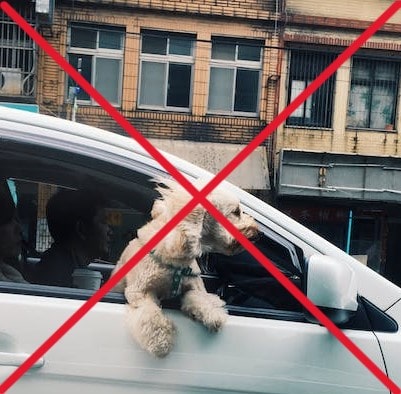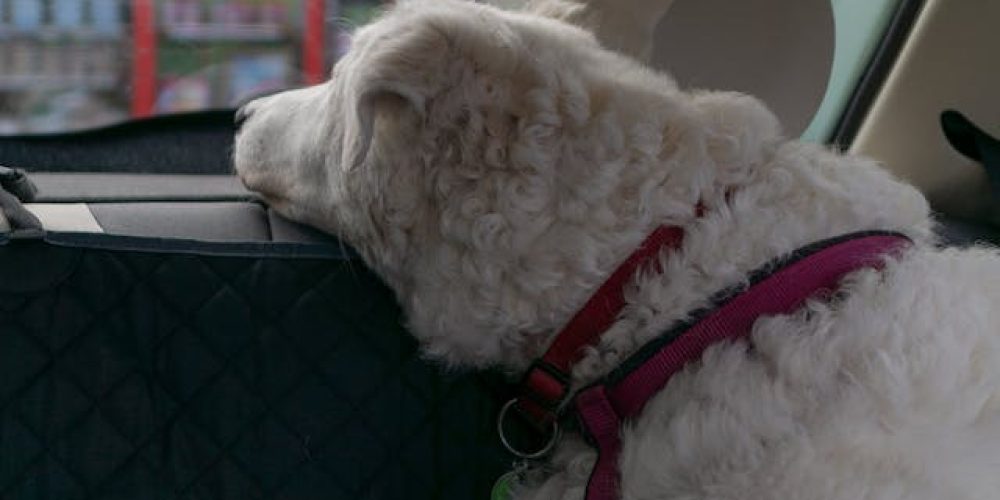Whether it’s planes, trains or automobiles, it seems our pets travel everywhere with their humans these days! And according to the RAC motoring organisation, we’ll make 20 million car journeys between the 1st and 25th of December; 40% of these in just 2 days. And since 5 out of 6 dog owners will take their furry family with them wherever they travel at Christmas, lots of pets will be on the move. With varying levels of enthusiasm!
Preparing to travel with pets: medicine and special diets
With shops closed and in-person vet practices only open for emergencies over the Christmas period, you won’t want to run out of your fur family’s essentials.
- Make sure you have enough food for the holiday period. Especially if your pet has a special or prescription diet.
- Order your pet’s medicine well in advance. Your vet may need a bit more time to prepare if they get lots of requests.
- Remember, deliveries from online pharmacies and food suppliers may take longer.
Travelling by car with a pet
Safety First!
All occupants of cars have to be safely restrained in a moving car. It’s the law!
No matter how careful we are, bumps and sudden stops on the road will sometimes happen. If they’re not secure, a sudden stop could catapult your pet through a window into the road. Or into a human passenger.
Keep your pets and passengers safe in the car by following these simple guidelines:
- Dogs are most secure in their own crate in the back of a car or secured with a seat belt harness.
- Keep cats safe in a secure carrier when travelling.
- Don’t travel with pets on your knee – for their sake and yours.
- Don’t let your dog put their head out of the window when you’re driving. Dogs may love feeling the breeze on their faces at speed. But a closer-than-expected lamppost or a car coming the other way can lead to tragedy. And even a fly, stone or piece of grit in your dog’s eye while travelling at speed can cause serious eye injuries.
- Dogs travelling in the front passenger seat or footwell might distract you or get between your foot and the control pedals. If your dog distracts you when you’re driving, it constitutes ‘driving without due care and attention’. And that means a hefty fine and points on your driving licence!

Be prepared
Your dog’s first car journey shouldn’t be 8 hours on a motorway or a long winding road.
- Get your pet used to travelling shorter distances and build up gradually.
- Travel later or earlier in the day, when the roads are quieter.
- Feed your dog a light meal at least an hour or two before travelling. Best not to have a full tummy in the car. And take them for a walk before starting out.
- Speak to your vet about medicine for travel sickness if your pet won’t settle in the car.
Comfort breaks
- Check the route before you go so you know where to break up longer journeys with comfort breaks for everyone.
- Carry plenty of fresh water for your dog and a bowl.
- Don’t forget the poo bags.
- If it’s a long journey, carry light, easy-to-digest food for snacks, unless your dog is travel-sick.
- Check out quiet pet-friendly cafes on the route so you can all keep cool together.
- Always keep your dog on a lead near busy roads.
- If you’re travelling far from home, consider carrying a pet first aid kit.
Boredom busters
- If you can’t persuade your dog to play ‘I-spy’ or ’20 questions’, take along a favourite toy or blanket.
- Break up the journey with detours to a grassy park to play. Or at least a motorway service station that has some grassy areas.
Travelling by train with a dog or cat
- Well-behaved dogs can travel on trains with their owner, as long as they stay on a lead or in a carrier
- Cats need to travel in a secure carrier
- You can take up to 2 pets with you free of charge, but any more you need to contact the train company first
- Just like travelling by car, try to break up the journey and travel on quieter trains at quieter times of the day. Travelling on a packed train close to Christmas could be an uncomfortable way to start the holidays.
- Remember, your dog can’t pee or poo on a train, so journeys can only be as long as they can comfortably wait between walks.
Travelling by bus with a pet
- Many UK buses will allow travel with one small dog or other pet. However, it’s always up to the driver. And usually, only one pet at most is allowed on any bus. If the bus is busy, the driver may say ‘no’. If you are relying on the bus, plan for alternative times and routes as a backup.
- If you do travel by bus, keep your pet on a lead or in a carrier, and clear of the gangway. It could be cramped!
Travelling for pets is strange and unsettling at best. Loss of routine, strange smells and sights, and lots of noise are going to leave them feeling exhausted. They may be restless and agitated. However you travel, give your pet time to acclimatise to new surroundings. Keep your dog on a lead when you arrive. Keep cats and small pets secure in their carrier until they start to become familiar with new surroundings.
Pet travel abroad
If you’re planning a holiday abroad with your pet, advance planning is essential. Talk to your vet as soon as you start to consider taking your dog to another country.
Requirements for pet travel to the EU or Northern Ireland:
- Their own Pet Passport or
- A UK Health Certificate.
Both the Pet Passport and UK Health Certificates need proof of:
- Microchipping date
- Rabies vaccination – booster dates.
Your pet can’t travel to any EU country or NI until at least 21 days after their first rabies vaccination, or restarting rabies vaccination if boosters have lapsed.
- Tapeworm treatment is required to enter some countries and for return to the UK
- Check the entry requirements for the country you’re travelling to. Different countries can have different rules surrounding the frequency of rabies boosters and worming requirements.
So whether you’re returning to the fold or fleeing the festive mayhem, plan ahead for Christmas travel. And help ensure you and your fur family have a peaceful and stress-free Christmas this year.
Merry Christmas from all your pet family friends at Joii!

Coming soon……on the seventh day of Christmas
Looking good and feline great for Christmas – festive tips for coat and skin care











